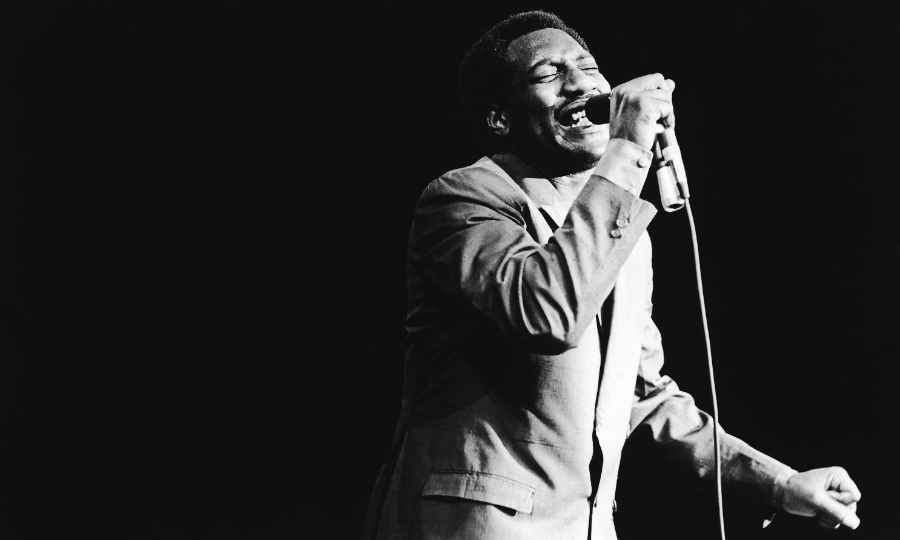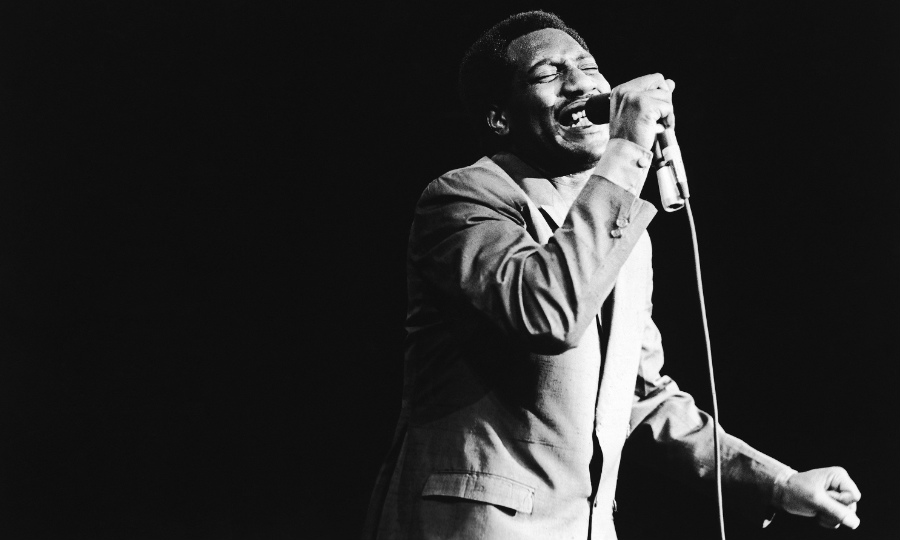On December 10, 1967 the world lost one of the greatest soul singers of all time. A private plane carrying Otis Redding and his bandmates stalled on its approach of the Madison airport in Wisconsin, crashing into the waters of Lake Monona killing all but one of its eight passengers.
After a show stopping performance at Monterey Pop Festival, extensive triumphant tours of Britain, France, and Scandinavia, and a slew of successful albums with Stax Records, Otis Redding was one of the most revered soul artists around.
Redding was crowned as the male counterpart to Aretha Franklin, whom he endowed with the smash hit Respect. Having transcended the limitations of the ‘Chitlin Circuit’, a string of ghetto theatres and Southern night clubs, Redding had attracted masses of young black and white audiences, hoping to connect with the wider world of rock.
The rapport between Redding and his rhythm section — Steve Cropper on guitar, Donald (“Duck”) Dunn on bass, Al Jackson on drums, and Booker T. Jones on keyboards (known collectively as Booker T. and the MG’s) — was extraordinary, blowing people away his with passionate, deeply soulful performances and voice.
Here are 5 amazing things you didn’t know about Otis Redding.

On the anniversary of the death of the world’s greatest soul singer we have procured 5 amazing facts about the legendary voice of Otis Redding.
5. Banned from a talent show
When he was just 17, Otis Redding received his first taste of success. In 1958 Redding entered a talent contest at the Roxy and Douglass Theatre in Macon, held by disc jockey Hamp Swain titled ‘The Teenage Party’.
Johnny Jenkins, a locally prominent guitarist was in attendance and, feeling like Redding’s backing band was lacking in musical proficiency, offered to accompany him. Redding sang Heebie Jeebies by Little Richard, whom he frequently cited as a major influence.
The collaboration allowed Redding to win Swain’s contest 15 consecutive weeks in a row before he was banned to give other contestants a chance. The prize was $5 per week, the total sum of which equates to $645 US Dollars in 2019.
4. Otis scored a record deal
After the contest Otis was meant to be a member of Johnny Jenkins and the Pinetoppers but they hired him as a driver instead as Jenkins didn’t have a drivers license.
During a recording session for Stax Records in 1962 organised by the band’s manager, Phil Walden, Jenkins was playing with Booker T and the MG’s though it was ultimately unproductive and ended early.
This left forty minutes of studio time unused. Redding asked if he could record a ballad he wrote and Jenkins played guitar. The song happened to be These Arms of Mine.
Stax studio chief Jim Stewart signed Otis Redding that day and he drove home with a contract in his pocket.
3. Whistle solo was a happy accident
You know the whistling at the end of (Sittin’ On) The Dock Of The Bay? It wasn’t supposed to be a part of the final song and Otis only whistled because he was still working on the final lyrics.
It was recorded with Booker T. Jones on keyboard and MG’s guitarist Steve Cropper on the guitar. They never had a chance to replace it as he tragically died just a few days later at the age of 26. The whistle solo has become a staple of the song and it wouldn’t quite be the same without it.
2. (Sittin’ On) The Dock Of The Bay was the first posthumous #1 hit in history
In 1967, Otis Redding actually lived in a boathouse across the bay from San Francisco and he would literally sit and watch the ships on the bay coming and going as he says in the lyrics.
In a tragic twist of fate, Otis died two days after recording it. Otis, and all but one of the band members died in the plane crash. He was just 26 years old.
Stax records rushed final production for (Sittin’ On) The Dock Of The Bay. When it was released early in 1968, it shot straight to the top of the charts and sold 3 million copies in the US going 3x Platinum.
1. World’s best male vocalist
Otis was so immensely popular in England towards the end of his life that he ended Elvis Presley’s eight year reign as the ‘world’s best male vocalist’ on Melody Maker’s annual poll in 1967. In fact when he arrived in England for his ’67 tour Otis was greeted by The Beatles’ personal limo. How’s that for royalty?



